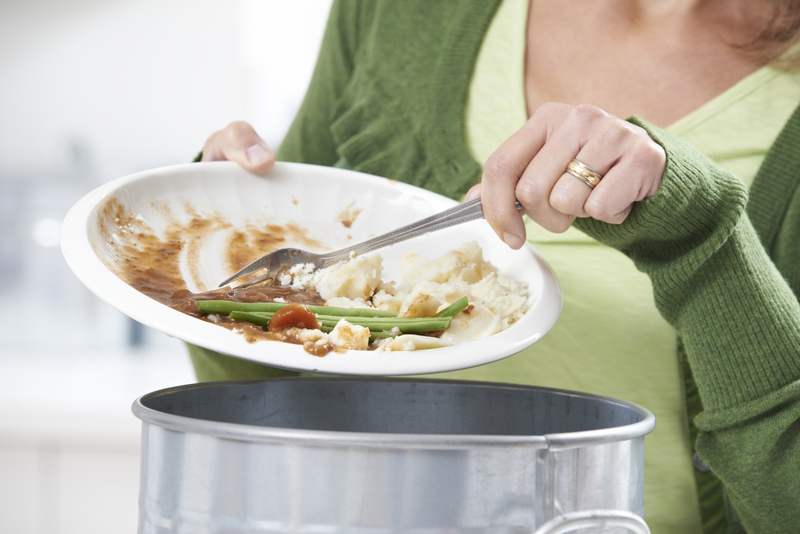Making PPE Waste Disposal Part of Your Daily Routine
PPE waste disposal has become an increasingly significant issue in today's health-conscious world. The rise in the use of masks, gloves, face shields, and other personal protective equipment has been vital in combating health threats, such as the COVID-19 pandemic. However, this uptick in PPE use has also resulted in mounting PPE waste that can harm the environment and public health if not handled properly. Making PPE waste disposal a part of your daily routine is not only vital for maintaining hygiene but also for protecting our planet.
Why Is PPE Waste Disposal Essential?
PPE (Personal Protective Equipment) is designed to safeguard users against infectious materials and hazardous chemicals. Items classified as PPE include:
- Disposable face masks
- Gloves (latex, nitrile, vinyl)
- Face shields and visors
- Protective gowns
- Disposable shoe covers
- Respirators
Due to the rise in use, improper PPE waste management can pose numerous problems:
- Increased risk of spreading infectious diseases
- Environmental pollution, particularly in waterways and wildlife habitats
- Blockage of sewage and drainage systems
- Persistent litter in public spaces
Addressing how to properly dispose of PPE items is now critical. Establishing a PPE waste disposal routine at home, work, and in public spaces ensures a healthier environment for everyone. Below, discover how you can seamlessly integrate effective PPE waste disposal into your daily habits.

Understanding PPE Waste: What Qualifies?
The Different Types of PPE Waste
PPE waste is any used personal protective equipment that can no longer be safely reused. The most common items include:
- Masks -- both disposable surgical and cloth masks that have reached the end of their useful life
- Gloves -- typically single-use items used in healthcare, retail, or cleaning environments
- Gowns and Aprons
- Head and Shoe Covers
- Face Shields and Goggles
These items may become contaminated after use, especially in medical, industrial, or high-traffic settings. Proper PPE waste removal is necessary to avoid cross-contamination and environmental hazards.
Environmental Impact of Improper PPE Waste Disposal
The sheer volume of PPE waste generated globally is staggering. Single-use masks and gloves, made primarily from plastics like polypropylene, can persist in the environment for hundreds of years. If personal protective equipment waste disposal is neglected, misplaced PPE can end up:
- Clogging drains and causing urban flooding
- Entangling or being ingested by wildlife
- Breaking down into microplastics that infiltrate food chains
Conscientious PPE waste management not only safeguards public health, but it's also a critical responsibility for protecting our planet for future generations.
How to Develop a PPE Waste Disposal Routine
1. Designate PPE Disposal Zones
The first step toward effective PPE waste disposal is to establish visible and accessible disposal zones wherever PPE is used:
- At home, keep a dedicated closed-lid bin near the entrance for mask and glove disposal
- In offices and public buildings, place labeled PPE bins at exits and high-activity areas
- Organization should inform and encourage everyone to use these bins consistently
Clearly marked bins help reduce littering and ensure safe collection of contaminated items.
2. Use the Right Waste Bags
PPE, especially that suspected of contamination, should go into durable, leak-proof garbage bags--preferably colored or labeled specifically for PPE waste:
- Yellow or red bags are often designated for clinical or infectious waste in many countries
- Home users can use regular heavy-duty garbage bags, but double-bagging is recommended if PPE may be contaminated
- Seal bags tightly to avoid accidental contact and leaks
3. Avoid Mixing with General Waste
Do not mix PPE waste with recyclable materials or general household trash. PPE can contaminate recyclable waste, and mixing it with non-infectious garbage can pose health risks to sanitation workers.
4. Follow Local Guidelines for PPE Waste Collection
Different cities and countries have adopted specific protocols for PPE waste collection and disposal. Always:
- Check your local municipality's website for updated PPE waste disposal instructions
- Comply with special pick-up schedules, if applicable
- Label PPE waste bags as "PPE Waste" or "Biohazard" if recommended
Adhering to local rules ensures that your PPE waste is processed correctly, minimizing community health risks.
5. Make Hand Hygiene Part of Disposal
Every time you dispose of PPE waste, immediately wash your hands for at least 20 seconds or use hand sanitizer. This simple act significantly reduces the risk of spreading germs and viruses during the disposal process.
Best Practices for PPE Waste Management at Work
Educate Your Team
Employee training is crucial for any effective PPE disposal program. Hold regular sessions on:
- Correct PPE usage and disposal protocols
- The environmental and health impacts of improper disposal
- How to report accidental PPE litter
Engaged and informed employees are more likely to adhere to best practices and encourage others to do the same.
Regularly Empty PPE Waste Bins
Schedule regular checks and disposal of PPE waste bins to prevent overflow and ensure waste is moved promptly to main disposal points. Overflowing bins can lead to accidental spillage and increase infection risks.
Use Closed-Lid Bins
Opt for bins with lids to limit odour, reduce pest attraction, and lower the risk of airborne contamination. Wherever possible, use foot-operated openers to minimize hand contact.
Display Clear Signage
Place signs above each collection point, highlighting what goes in the bin and the importance of proper PPE waste disposal. Use symbols and multiple languages if needed to accommodate all staff members and visitors.
The Role of PPE Waste Disposal in Public Health
Preventing Disease Transmission
Used PPE frequently harbors harmful pathogens. If disposed of improperly, items like masks and gloves can spread bacteria and viruses to:
- Family members at home
- Workplace colleagues
- Sanitation workers
- The broader public
Proper PPE waste management is a simple yet effective barrier against the spread of infectious diseases.
Environmental Stewardship
PPE waste that enters our environment can have devastating ecological effects. Single-use plastics slowly degrade into microplastics, polluting our oceans and drinking water. By incorporating PPE waste disposal into your daily routine, you perform a small but critical act of environmental stewardship every day.
Challenges in PPE Waste Disposal and How to Overcome Them
1. Lack of Awareness
Many people are unaware of the correct procedures for PPE disposal. Raising awareness through educational campaigns, posters, or workplace memos can prompt behavioral change and foster community participation in proper waste management.
2. Inadequate Infrastructure
Some neighborhoods may lack sufficient bins or regular collection services. Where infrastructure is lacking, consider:
- Partnering with local authorities for special PPE waste pick-ups
- Organizing neighborhood collection points
- Using home-based solutions like double-bagged, clearly labeled waste bags
3. Cost Concerns
There is a perception that PPE waste disposal is costly. However, the long-term health and environmental costs of improper disposal are far higher. Investing in the right bins, bags, and signage is a small price for cleaner, safer communities.
Sustainability and the Future of PPE Waste
Biodegradable and Reusable PPE Options
Innovators are developing safer and more sustainable PPE alternatives, such as:
- Biodegradable masks and gloves made from natural fibers
- Reusable face shields and cloth masks (when properly sanitized)
- Recycling programs for certain types of PPE in specialized facilities
Choosing sustainable PPE and correctly disposing of single-use items reduces your environmental footprint.
Circular Economy Solutions
A true shift toward sustainable PPE waste management involves exploring closed-loop or circular economy models, such as:
- PPE recycling initiatives in healthcare and industry
- Manufacturers designing PPE products for easier deconstruction and recycling
- Public-private partnerships to increase collection and recycling rates
Tips for Making PPE Waste Disposal a Habit
- Keep PPE bins handy: Place disposal bins where you remove masks, gloves, and other PPE for easy access
- Visual reminders: Use stickers or signs to remind everyone to dispose of PPE properly
- Regular routine: Incorporate PPE disposal into your cleaning or exiting routine, such as dropping masks in a bin before washing hands
- Lead by example: Model good behavior at home, work, and in public
- Share knowledge: Inform friends and family about safe PPE waste disposal practices

Common PPE Waste Disposal Mistakes to Avoid
- Flushing masks or gloves down the toilet: This can block plumbing and contribute to environmental pollution
- Throwing PPE in recycling bins: Contaminated PPE cannot be recycled with regular materials
- Littering in public spaces: Not only is this unsightly, but it's also hazardous
- Handling used PPE without protection: Always use gloves or wash hands immediately after touching used PPE
- Overfilling bins: This increases the risk of spillage and contamination
Conclusion: The Importance of Daily PPE Waste Disposal Rituals
Making PPE waste disposal a part of your daily routine is a powerful tool in the fight against the spread of infectious diseases and environmental pollution. Through simple, consistent practices--like using the right bin, following local guidelines, and maintaining good hygiene--you help protect your community and the environment.
By spreading awareness, encouraging sustainable choices, and advocating for improved waste management infrastructure, you play a critical role in building safer and cleaner spaces for everyone. Small actions, repeated daily, make a world of difference. Start today: make PPE waste disposal second nature for a healthier tomorrow.



